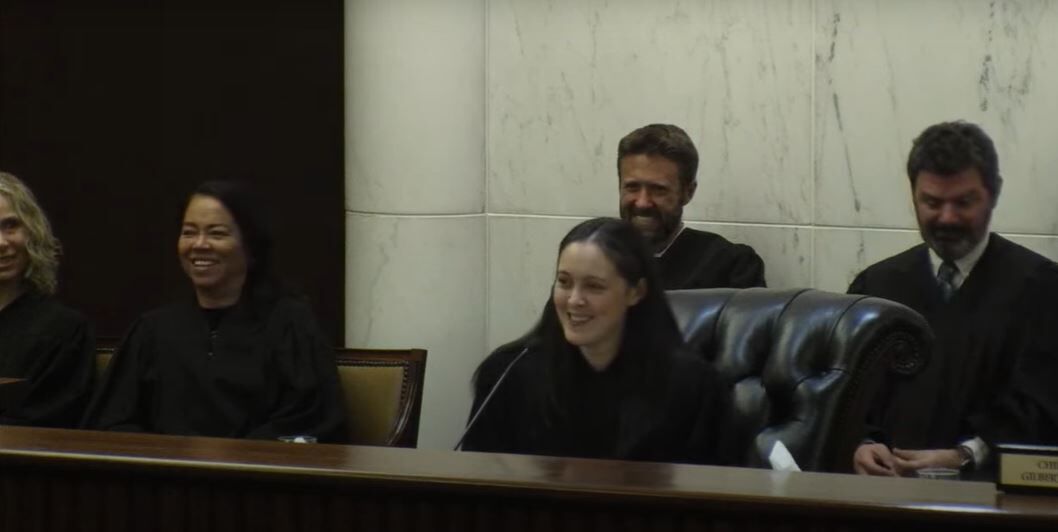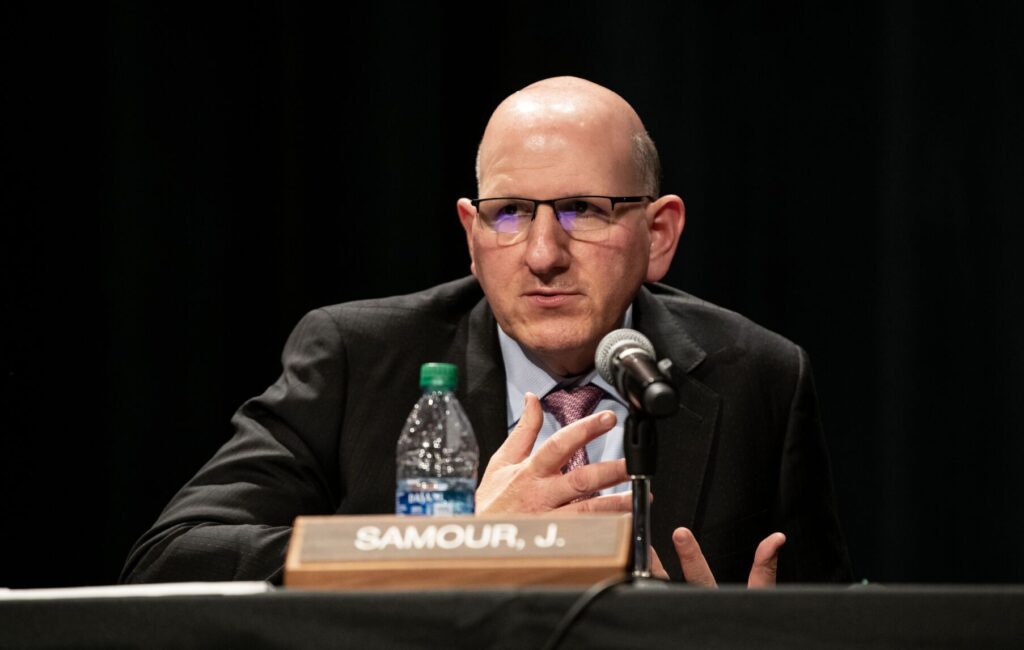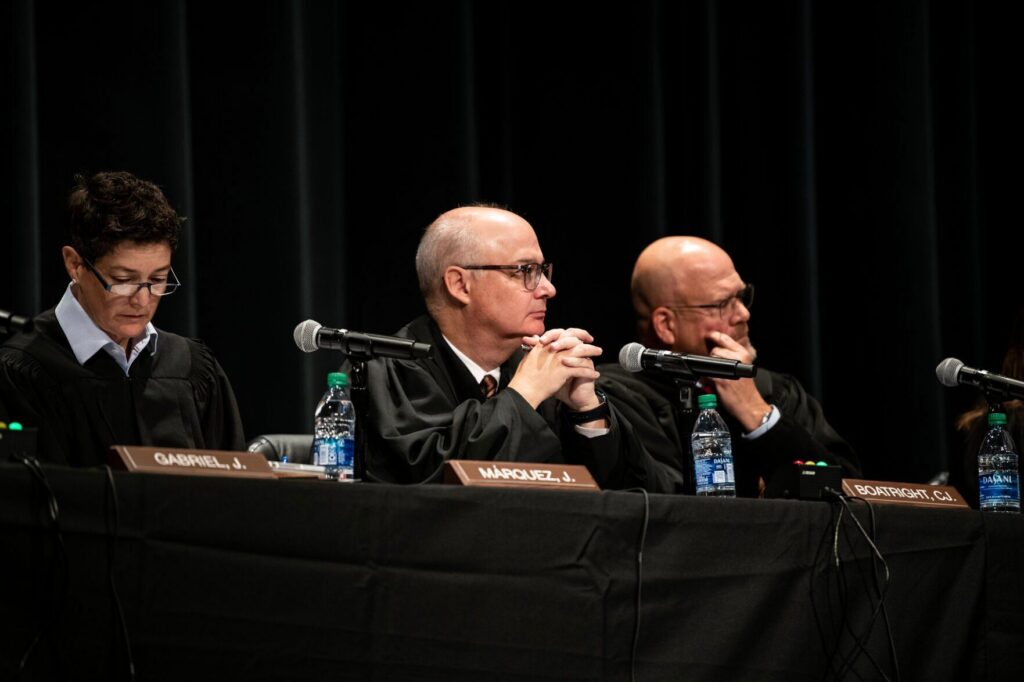Jeffco student may pursue defamation claims against sex assault accusers, appeals court rules

A former student of Evergreen High School may proceed with his defamation claims against two of his classmates and their mothers for calling him a “predator” and an assailant to school officials, even after he had been acquitted of criminal charges related to sexual misconduct.
The decision from the state’s Court of Appeals last week involved the insistence by two teenage girls and their parents that Benjamin Gonzales had committed sexual assault, and Gonzales’ counterargument that their inflammatory statements kept coming even after the accusations collapsed under scrutiny.
In weighing whether Gonzales had a viable lawsuit, a three-judge appellate panel agreed the defendants’ communications to administrators were not shielded from liability simply because they were connected to Gonzales’ school-based disciplinary proceedings. The panel concluded the process Jefferson County School District used to investigate and punish Gonzales lacked critical safeguards and, as a result, the complaining parents were not immune for their participation.
“On one hand, we are mindful of the need to encourage victims of sexual assault to report the crimes allegedly committed against them, particularly because such victims are often reluctant to speak out,” wrote Judge Katharine E. Lum in the Sept. 28 opinion. On the other hand, the “right of the accused to receive fundamental fairness before imposing such consequences is no less important than the right of the victim to seek justice.”
Case: Gonzales v. Hushen
Decided: September 28, 2023
Jurisdiction: Jefferson County
Ruling: 3-0
Judges: Katharine E. Lum (author)
Jerry N. Jones
JoAnn L. Vogt
Background: Appeals court allows DPS board member’s defamation claims to proceed over sex assault allegations
The appeal in Gonzales’ lawsuit focused on the intersection between two major laws: Title IX, a federal provision that outlaws sex-based discrimination in education programs, and Colorado’s “anti-SLAPP” law, which stands for “strategic lawsuits against public participation.”
Colorado legislators enacted the anti-SLAPP law as a mechanism to quickly dispose of litigation that implicates a person’s First Amendment rights – specifically, the rights to free speech and to petition the government. Not all conduct is shielded, as the Court of Appeals has previously sided with a city council candidate who sued his online impersonator and a Denver school board member suing those who publicly accused him of sexual assault.
Gonzales was a student at Evergreen when his classmates, Ashley Hushen and Alexandra Weary, accused him of sexually harassing and assaulting them in 2018. Although Colorado Politics does not normally name alleged crime victims, all of the parties to Gonzales’ lawsuit used their full names in court.
The school performed an investigation pursuant to Title IX, which Gonzales characterized as bare bones. He was expelled from school and prosecutors in Jefferson County brought criminal charges against him for unlawful sexual contact.
In late 2019, Sheila A. Rappaport, a retired Denver judge who presided over the trial, acquitted Gonzales. She said she did not condone some of Gonzales’ “objectionable and disturbing conduct” toward his classmates, but concluded his accusers’ testimony was inconsistent, did not reflect reality at times and “began to evolve” once the girls collaborated with each other.
After the trial, the district indicated it would revoke its prior findings of the Title IX investigation and Gonzales sought readmission to Evergreen. In response, Julie Hushen and Nicole Weary, the mothers of Gonzales’ accusers, sent emails to school personnel arguing against readmitting “this predator,” referring to their daughters as “victims” and claiming Gonzales had a “history of sexual assault.”
Subsequently, the school district reopened its Title IX investigation into Gonzales.
Gonzales sued his accusers and their mothers for defamation, prompting the defendants to ask for dismissal under Colorado’s anti-SLAPP law. Then-District Court Judge Robert Lochary considered whether all of the communications were shielded from liability because they amounted to petitioning the government in connection with a proceeding – specifically, the reopened Title IX investigation.
Because the investigation lacked key procedural safeguards, like a hearing on the allegations, Lochary concluded it was not a “quasi-judicial” process for which immunity applied. He granted the motion for some communicaitons, but denied it for others.
All parties then appealed. Gonzales argued his lawsuit should proceed in its entirety because at the time of the mothers’ emails, they were aware he had been found not guilty of sexual misconduct, yet proceeded to defame him to school personnel.
“While they may still believe their daughters as a matter of parental loyalty, it is an unreasonable belief,” attorney Carolyn Pelloux told the appellate panel.
The defendants claimed the reopened Title IX investigation did satisfy the requirements for immunity, so none of the mothers’ emails could support a lawsuit. However, Judge Jerry N. Jones slammed the defendants at oral arguments for misquoting a court case to make it seem as if Gonzales’ hearing satisfied the legal standard.
“What is your excuse for omitting that language?” Jones demanded.
“Error. And I apologize,” responded Steven Zansberg, who also represents Colorado Politics.
“It’s a rather convenient error,” Jones retorted.
Ultimately, the panel agreed with Gonzales. It found Jeffco Public Schools’ procedures included no hearing, no ability to call or cross-examine witnesses, and no clear opportunity to respond to evidence. Therefore, it was not “quasi-judicial” and the defendants had no immunity for their statements in support of the reopened Title IX investigation.
Lum also wrote in the opinion that Gonzales had shown the mothers likely knew there was serious reason to doubt their “predator” claims were true, in light of Gonzales’ acquittal.
“We are mindful that, as the trial court observed, Gonzales’s acquittal does not necessarily mean that he did not commit sexual misconduct against defendant daughters,” she cautioned. But there seemed to be “an awareness by all defendants that at least some of the allegations were false.”
Zansberg said his clients are considering an appeal to the Colorado Supreme Court because the appellate panel’s decision opens the door to liability for statements made in other types of governmental investigations. Gonzales’ attorney did not respond to a request for comment.
A spokesperson for Jeffco Public Schools did not respond to questions about the Court of Appeals’ characterization of the district’s Title IX procedures.
The case is Gonzales v. Hushen et al.














